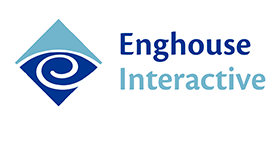Gary Bennett at Enghouse Interactive explains how businesses can combine technology and emotional intelligence to manage a surge in call volumes.
Many industries have been hit hard during the last two years, none more severe than tourism and hospitality, who have suffered many major setbacks. They have had to grapple with travel bans, leading to grounded flights and multiple hotel bookings being cancelled.
As we have repeatedly seen many times, this has resulted in thousands of stranded travellers scrambling to return home and holiday-makers unsure about the next steps around current and previously booked holidays.
With the easing of restrictions along with the end of the travel tax, holiday bookings have jumped. Nevertheless, many in the travel industry remain wary of new variants such as Omicron prompting new rounds of restrictions, with others such as John Holland-Kaye, chief executive of Heathrow Airport, warning that a return to normal could be years away.
It seems likely that regular restrictions will be repeated at regular intervals over the coming years. On each occasion, contact centres will be inundated with frantic callers about their next steps, their options to return home if stranded and what to do about upcoming already booked holidays.
Businesses need to be well equipped to deal with this increase in calls but, just as importantly, they must also have the emotional intelligence to deal with worried and distressed customers in these situations, especially as these queries can be quite complex or emotionally charged.
It is a situation made worse by taking place at a time when resources are stretched with many customer service agents still working remotely or being forced to isolate.
Finding a Way Forward
So how can contact centres best go about meeting these multiple challenges? How issues and complaints are handled may ultimately make the difference between losing business and the all-important strengthening of long-term customer relationships.
Invariably, customers want their issues dealt with quickly and efficiently and the level of demand can be reduced if information is readily available through self-service options.
Therefore, giving customers access to information about available flights, testing requirements and quarantine arrangements, for example, will be essential in ensuring the customer relationship stays strong.
If they are dealing with routine enquiries of this sort, consumers will expect that service experience to be straightforward, but if something has gone wrong, if the interaction is more emotional or more complex, such as when a traveller remains stranded abroad, then customers may want to connect at a personal level and not be forced to speak to a chatbot or be held in a long queue.
On the one hand, resources will need to be put in place quickly to deal with this. Businesses can look to address this by spinning up more virtual machines in the cloud and bursting and scaling rapidly so as to be able to draw on resources elsewhere in the organisation or to bring in new people quickly for defined periods.
For the most complex or emotionally charged interactions, videoconferencing can serve as an effective channel to establish more personal connections with customers. When faced with a complex series of travel options for example, customers may need some handholding and appreciate a friendly face.
Having a service agent on hand, working through an issue can make the process easier, with the added convenience of offering co-browsing capabilities and sharing URLs, to help save time and reduce the chance of additional frustration.
Agents can also make use of centralised knowledge bases that allow them to instantly access up-to-date accurate information and resolve the customer’s query quickly. Through all this, it is key that agents show empathy and emotional intelligence.
Customers’ levels of patience have been eroded both by the stresses of the pandemic and also by the ongoing digitalisation of service delivery, which has led them to expect and anticipate instant gratification.
Technology can help here also. Tools like real-time speech analytics (RTSA) can monitor stress, speech volume and clarity and frequency of interruptions and therefore gauge the emotional temperature of any call. This additionally allows agents or their supervisors to adjust the approach and calm calls down when needed.
We are living through complex, unpredictable times. Businesses are frequently having to navigate fast-changing scenarios all the time keeping customers informed and up-to-date with relevant information as well as providing empathy and reassurance.
Human emotional intelligence is key here – but putting in place the right tools and technologies to back that up is equally essential.
For more information about Enghouse Interactive - visit the Enghouse Interactive Website
Call Centre Helper is not responsible for the content of these guest blog posts. The opinions expressed in this article are those of the author, and do not necessarily reflect those of Call Centre Helper.
Author: Enghouse Interactive
Published On: 11th Feb 2022 - Last modified: 15th Feb 2022
Read more about - Guest Blogs, Enghouse Interactive






 Enghouse Interactive delivers technology and expertise to help bring your customers closer to your business through its wide range of customer contact solutions.
Enghouse Interactive delivers technology and expertise to help bring your customers closer to your business through its wide range of customer contact solutions. 



























